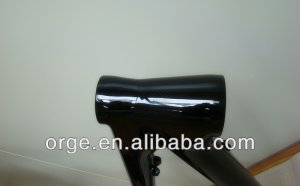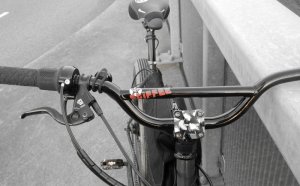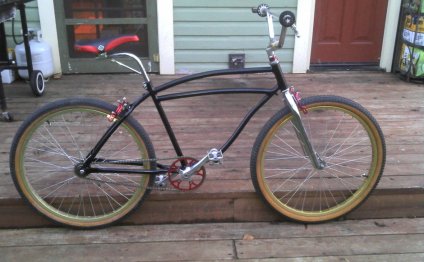
BMX Handlebars on Mountain bike
Handlebars can at first glance seem to be among the most simple of cycle components – shaped metal pipe that bit more than ensure the bicycle goes into the way you point it.
However handlebar design, proportions and geometry play a giant part not just in identifying just how your bicycle manages, but additionally in how good it suits you. Manufacturers also take advantage of products technology to shed weight while maintaining power and boosting convenience.
Keep reading for more information about BMX, MTB and roadway taverns and help you select kind which are right for your riding style and your maximum ergonomic placement.
Learn more about:
•
•
MTB riser taverns, where taverns sweep up at either end, have eclipsed flat pubs in popularity on the list of greater part of basic path riders whom choose a far more upright operating position for control and comfort.
Just like flat pubs, they're generally offered with standard (25.4mm) or oversized (31.8mm) clamp location diameter, and products vary from aluminium alloy (heat-treated and butted within the more costly bars) to carbon fiber.
MTB riser pubs are generally for sale in multiple measurements to match rider inclination, the most important becoming width, rise and backsweep.
• Width: Wider bars provider better influence in difficult path situations, improving self-confidence and control for a tradeoff of a little additional weight. The best width is determined by a rider’s own body, driving style and selected control, but 27” (685mm) is undoubtedly a beneficial all-round span for basic path driving.
Numerous Downhill (DH), Enduro and Freeride (FR) lovers will go for much larger bars, with some swearing by covers of 30” or even more. Most bars will come with graduated cutting marks on the ends for them to be sliced down seriously to size, but because is an obviously permanent procedure be sure you are certain of your ideal circumference before whipping from hacksaw.
• increase: Low-, mid- and high-rise bars can be found, with ‘low-rise’ being in or just around 3/4” (20mm) and ‘high-rise’ being 2” (50mm) or thereabouts. A little extra increase makes the steering feel more accurate but too-much will give a bike that too-upright ‘going into the stores’ feel.
• Backsweep: A little backsweep regarding the pubs meanwhile provides an even more comfortable place for wrists and shoulders. Ultimately the proportions come mostly down to a case of private inclination, therefore if feasible decide to try a selection of club sizes and combinations before you decide to get the dimensions that match your dimensions and magnificence.
Many taverns in the marketplace may be designed to fit a certain kind of riding, so choose correctly. A super-strong but heavy DH bar will likely to be overkill for many XC and path riding, while a featherlight low-rise XC club is asking for difficulty on a hardcore bike.
MTB flat taverns – have traditionally already been the decision of cross-country racers which appreciate their particular less heavy fat and also the lightweight, stretched rushing position they offer in combination with a lengthier stem. Nonetheless level bars have found favor among some gravity and DH bikers whom appreciate the low forward end plus weight-forward assaulting place that they can provide.
Just like riser pubs, level bars – or ‘zero-rise’ pubs – tend to be categorised based on their diameter during the point in which they truly are clamped into stem, with standard pubs having a 25.4mm clamp area and oversized (O/S) bars calculating 31.8mm. O/S bar-stem combos tend to be considered to be being stiffer and much more secure than standard sizes due to the bigger area regarding the clamping location, therefore became very first option for all but the many weight-conscious riders.
When selecting MTB flat bars you need to take into account geometry – club width and flex (if any) – and products.
• circumference: Bar width are determined by individual preference, with flat bars maintaining be a little narrower than their riser cousins owing to the increased concentrate on maximum operating place over singletrack handling. Typical ‘standard’ widths for level pubs are 580 or 600mm (versus 685mm for risers) but pubs will feature graduated markings from the grip ends up so they can be cut-down to preference.
• Bend: Bars’ bend or backsweep is the level that it sweeps back from a centre line – taverns with zero bend or backsweep tend to be completely straight, while a bar with5 examples of fold will be 5 levels angled right back from the centre at each end.
• products: Most MTB level bars are made from heat-treated aluminum alloy, offering good balance of stiffness, strength and lightweight for an acceptable cost. Higher-end alloy pubs is going to be butted, where pipe wall space are thinner in locations to shed unwanted weight, and thicker in others to enhance power.
On upper end associated with the market carbon fibre flat pubs provide ultimate in lightweight and strength, aided by the included benefit of increased vibration damping. Some carbon taverns can feature interior strengthening to accept club stops or perhaps in the shifter clamp areas, although some have a textured finish during the stem clamp area to cut back the risk of slippage.
The classic ‘racing bike’ fall handlebars provide roadway cyclists a number of various hand and operating jobs – on the top associated with the taverns for in-the-saddle climbing, from the hoods of the brake system for honking uphill or accelerating, or regarding the falls for sustained high-speed effort in a reduced, more aerodynamic position.
With a correctly-fitting handlebar you'll help your chest muscles without putting stress on your neck or arms, and help stabilize your body weight for optimum management.
The most typical products tend to be aluminum alloy (butted and heat-treated) and carbon fiber, with an ever-increasing trend for all-in-one carbon club and stem methods offering the ultimate in lightweight and ergonomic convenience – for cyclists who can pay for it.
Makers have provided much thought to the ergonomics of club design, deviating from ‘classic’ round club form – including flattening the tops regarding the bars and reshaping the bend associated with falls – to give maximum hand and wrist comfort. Again what realy works for you personally is a matter of personal choice, so make an effort to test-ride a few various setups.
Path pubs come in many different dimensions to match driver physique and preferences, the most crucial becoming circumference, drop and get to.
YOU MIGHT ALSO LIKE
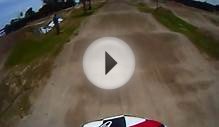
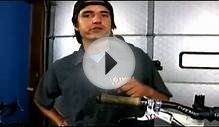
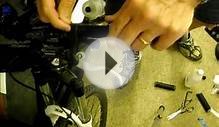
Share this Post
Related posts
Downhill full suspension Mountain Bikes
A complete suspension mountain bicycle allows you to drive off-road trails with an increase of convenience and control than…
Read MoreBMX style Mountain bike
The Rock is happy to possess partnered with EliteTrax Inc, in 2013 to design and develop our Milwaukee BMX track. The Rock…
Read More
